Isle de Jean Charles
Mississippi River Basin
|
NEW ESRI StoryMaps: What's On Our Shelves & NWNL Song Library & No Water No Life ESRI |
Mississippi River Basin
Jamie Dardar
Fisherman and Truckdriver
Alison M. Jones
NWNL Director and Lead Photographer
A Self-Sustaining Community
Fish, Salinity & Oil
Other Critters
Oil & Gas Impacts
Climate Change
DFW-Levee Board-Parish Takeover
The Island’s Future
Leaving a Legacy
Jamie’s Updates
All images © Alison M. Jones, unless otherwise noted. All rights reserved.
The Mississippi River Delta’s Isle de Jean Charles is 45 miles below New Orleans and 15 miles above the Gulf of Mexico. In 1955, it was 22,000 acres–now it’s 300 acres, due to storms, subsidence and rising sea levels. After an 1830 Indian Removal Act, nearby Native American families avoided Oklahoma reservations by moving to this island with plenty of wildlife, fish and rich soils. In the 1940’s, oil companies were drilling nearby. By 1953, a 2.5-mile road crossed through marshes to the mainland. But by 2011 the marshes had eroded, the road flooded and thus a new elevated, 4-mile Island Road was built. One year later, that new $6.24-million road was damaged by Hurricane Isaac. Since 2017 it floods regularly.
When NWNL arrived in 2014, most houses were on 15-foot stilts, due to recurring flooding. In 2016, after USACE’s massive levee to protect Delta shores excluded this island, 60 islanders received $52 million for relocation. In 2019, Hurricane Barry’s waters rose 10-15 feet overnight, forcing a dozen people onto roof tops and causing more damage.
Isle de Jean Charles residents are now called The First US Climate Change Refugees, but their move is also due to a “perfect storm” of flooding from oil and gas canals dug and left open, subsidence from oil and gas extraction, and loss of sediment held back by Mississippi River dams and levees. Jamie’s story of leaving his home foretells the many losses to befall the 13-million US climate refugees predicted by 2100, when retro-fitting and flood-proofing are no longer viable.
A Self-Sustaining Community
NWNL Jamie, how long have you lived here on Isle de Jean Charles?
JAMIE DARDAR I’ve been a resident for the last 40 years. I was born and raised out here on Isle de Jean Charles, which they now call “The Island in Pontchartrain, Louisiana.” According to the old maps, it used to be an Indian Reservation. On new maps, it says “Wildlife Management Area.” When I was about seven or eight years old, the LA Department of Wildlife and Fisheries and oil companies were trying to move us off. But my grandpa, my uncle and all the Dardars just stayed down here.
The many natural resources of Isle de Jean Charles have sustained generations of Dardars.
We even had a banker from out-of-state come and say he owned the whole island. The oil company removed the status of “Reservation” so it could come in to dig. The chief tried to move us off of here; but he was not my chief. Down here, it’s three different tribes: the Houma, the Biloxi-Chitimacha-Choctaw and the Pontchartrain tribes. The Bureau of Indian Affairs said we were too big as one tribe to be recognized. But Chief Chucky Verdun and Albert Naquin, the chief down here on this island, thought if they split off, the oil companies would help them get recognition as a smaller tribe.
NWNL But the Navaho are a much larger tribe. So, why are your 3 tribes, too big to recognize?
JAMIE DARDAR That was because the government would have had to give back too much land that they had taken. With a smaller tribe, the government could give back a smaller piece of land.
NWNL Oh, let’s pause this recording while that boat’s going by.
JAMIE DARDAR Yeah, we have a lot of boats down here- more than we used to. It seems like a lot of people came to visit after they made that little movie, Beasts of the Southern Wild. We had a lot of people back then saying, “Where are you all from?” When I was younger, we had big Greyhound tour buses that used to come down from like Minnesota, Michigan… but then they just quit.
NWNL Were those Minnesota travelers following the Mississippi River downstream from its source?
JAMIE DARDAR I have no idea. Some asked if we knew where the Mississippi River was and where it started. But we were kids. We did like it when the big buses came, because we could meet different people.
NWNL Did meeting those folks, ever make you want to leave the island?
JAMIE DARDAR I’m a commercial fisherman, but for over 20 years I drove across the US as a commercial truck driver. Then, I just got tired of it. I got burnt out, came down back here, and started doing what I did when I was a kid – fishing. I still love fishing. If you love what you do, it’s not really work.
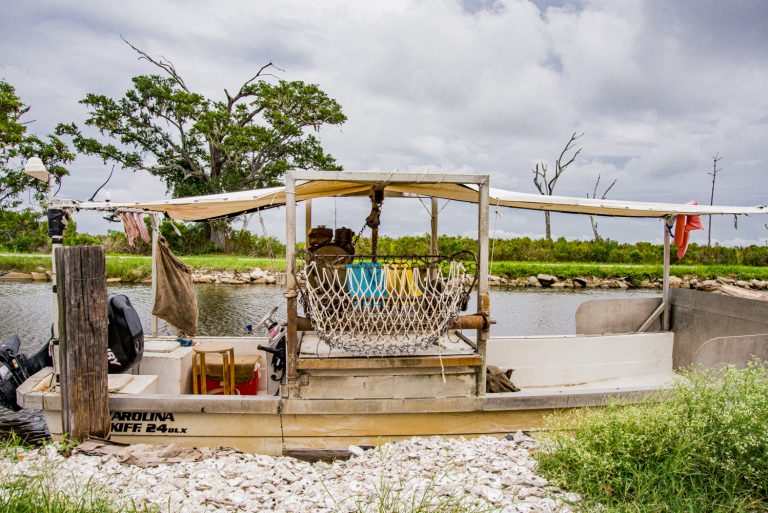
I used to leave every morning, go out and catch some fish on the line. I paid my bills fishing, just with a rod and reel. When I was able to make a living by fishing, I wasn’t making a killing; but my bills were paid. I try not to live beyond my means. I’ve made my living off the water, but since the [2010 Deepwater Horizon] oil spill, it’s been hard. There are no crabs and no shrimp. There’s no fish, hardly. In the last five years we’ve struggled to catch fish down here.
NWNL What do you fish for?
JAMIE DARDAR I never bought seafood from a store ever, ever. I always caught my own, which everybody down here did. I’ve got a cousin of mine that paddles out every morning to go check his crab traps because he can’t afford a boat. I go shrimping in the little bushes across from here. I cut them down and run shrimp on a string, with what they call a bush line. I also fish soft-shelled crab off of that. I pull it up, shake it and have soft-shelled crabs because they go in the bushes to “pop” off their shells.
I used to “pop crab,” but they shut me down, because of BP and all that happened with Deepwater Horizon. They even shut down another guy in Montegut for no reason, even though had his own filtration system and all kind of other stuff. [From the Louisiana Department of Wildlife and Fisheries: Crabs or stone crabs may be taken with any legal crab trap, crab dropnet, trawl, hoop net, trotline, handline, bushline, dip net or cast net. Dredges shall not be used for the intentional taking of crabs.]
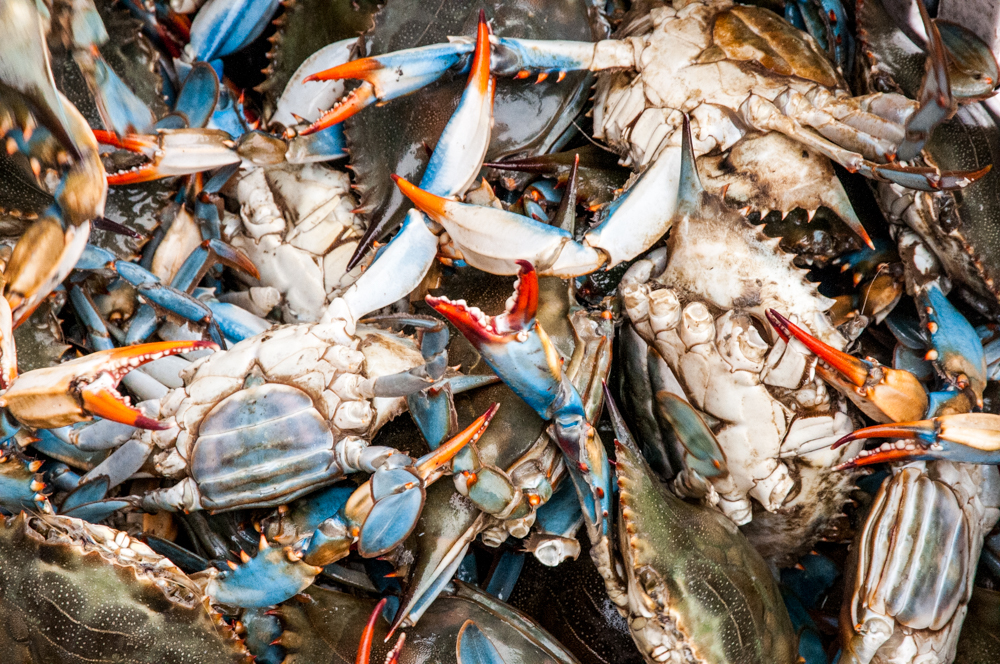
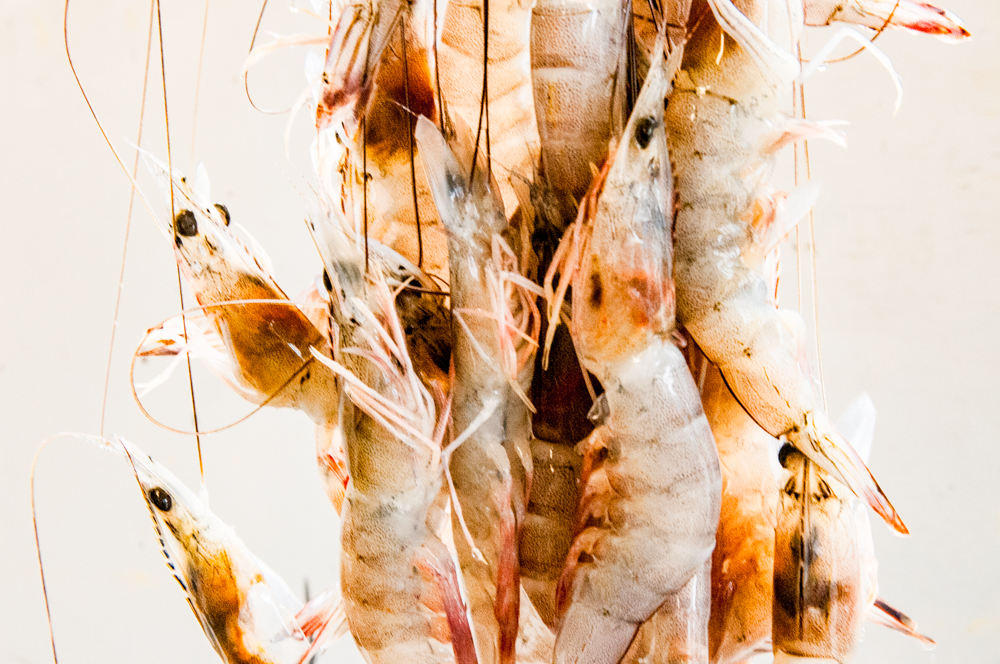
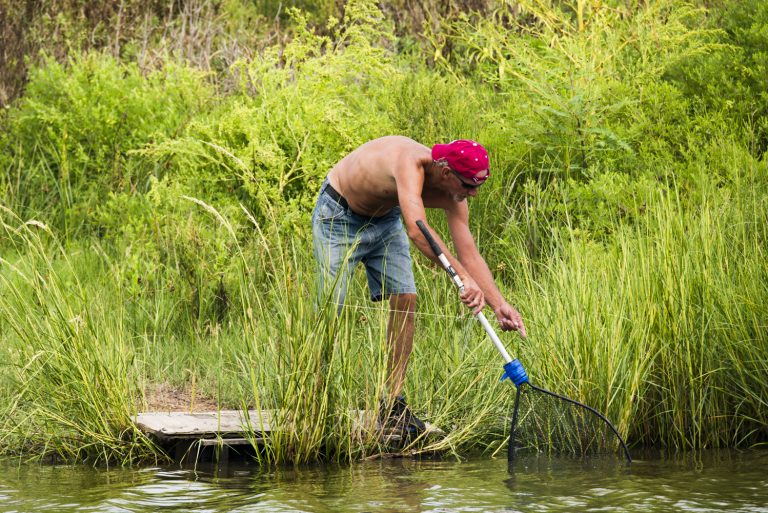
Shrimp and crabs are often caught on a line or netted in the Gulf of Mexico
NWNL How do you cook your crabs?
JAMIE DARDAR A lot of people go boil crabs. I pot-fry all my crabs. I love a pot-fry. I steam the crabs, pick the meatand put it into a gumbo. Or I just crack it, fry it and crack an egg into it for breakfast.
NWNL Does wild rice grow around here?
JAMIE DARDAR Yes, ma’am. I love eating rice. Rice was the staple diet here. We always ate rice. But rice needs fresh water. It doesn’t grow here now, but it does in the other parishes. We have nothing that grows over here.
NWNL Is that because of the high salinity of the water here?
JAMIE DARDAR Right. You need to flood rice; but if you flood it down here, you’ll kill it. That’s why I lost my little peppers and all that. Can’t put nothing in the ground no more. Plants will grow for a little bit, and then just die, because the salinity of the land is too much. So, I grow peppers, spice, and other things on my porch in pots, because there’s no dry land left. This is all marsh.
But, here’s how I grow potatoes since I have some fresh soil that’s not spoiled underneath the house. I mound little spuds inside a wire mesh cage that’s all above ground. When they’re ready, you don’t have to dig. You just take the wire off and spread the soil out-and there are all your potatoes!
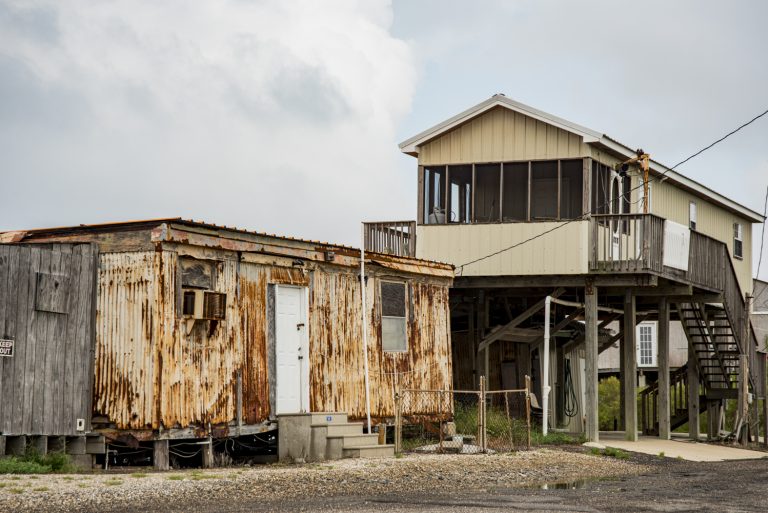
NWNL Do you have family on the Island?
JAMIE DARDAR Yes. My wife lives with me, and my mom and my aunt. I have no children myself, but I have nieces, nephews and cousins. From the front of the road to the end of the road, I’m related to everybody down here. It’s all just one big family. We all help each other out whenever we can.
If somebody has a little bit more fish than the other, they’ll pass it along, just like I do. If I catch fish that’s good to eat, but I can’t sell it, I give it to somebody instead of throwing it away. That’s just the way we were raised. Share your bundles. Don’t be greedy. Don’t keep it to yourself. If it ain’t going to do you good, pass it on to somebody who can use it. My wife and I cook at home. Enchiladas tonight. It’s our anniversary! Eleven years married, thirteen years together.
NWNL Happy Anniversary!
NWNL Where do you go fishing? Do you go by boat?
JAMIE DARDAR Back here, I go everywhere by boat; and sometimes I just fish off my dock. I can walk out of my porch and cast right there to catch redfish, trout, drum, and flounder. Sometimes we catch a little shark. Shark is bad, but a lot of people don’t realize that. We’ve got a lot of sharks.
NWNL Somebody describing this island to me said, “It’s really changed. They don’t have alligators anymore, they have sharks.”
JAMIE DARDAR Oh, yeah. Just last week, I watched a little baby shark feeding on the side of the bank here. It came in, catching little fish right there. Every now and then, we get a ‘gator coming in, but the saline level is so high, they don’t stay. We had alligators, turtlesand snakes. We used to catch little green turtles; but we don’t catch none now. As far as snakes, I ain’t seen one down here in years. Believe me, I’ve been through all that grass, set traps, slept out there – and I never see nothing poisonous anymore, because it’s too salty. All of it is gone. The saltwater ran them all out.
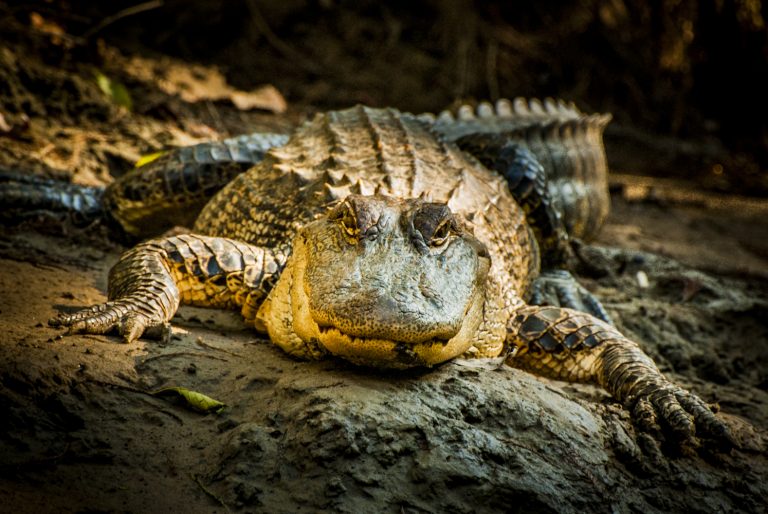
NWNL How dangerous are sharks versus alligators?
JAMIE DARDAR Well now, when you go out there fishing, you’ve got to take a chance with swimming with a shark. I’d rather swim with an alligator than a shark any day. Alligators won’t attack you, really. We used to swim with a big old ten-footer. He never bothered us. But twice I’ve been hit by sharks down here. Twice. Both times I was lucky. One just skinned my back; and the other one just bumped me. I ain’t waiting on a third one.
A lot of people don’t realize we have lot of sharks in here. We catch ‘em from anywhere from two to six foot. A friend of mine was attacked by a 14-foot shark right out there. It attacked us both. That’s a big shark. It’s a miracle nobody’s ever been killed, because at nighttime when you’re skimming shrimp, if you catch a crab trap in the wheel, you’ve got to get overboard to pull it out. Everybody knows that whenever you’re skimming, you’ve got sharks that follow the boat catching those little fish behind you. That’s why I ain’t getting in that water.
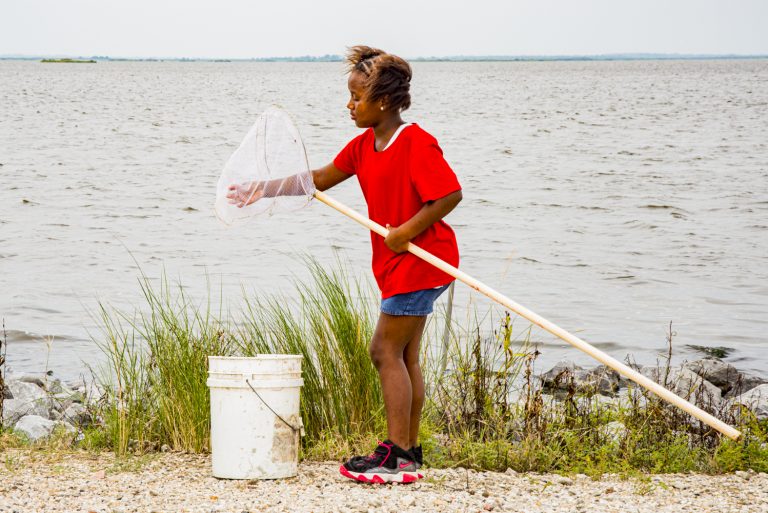
NWNL But can you catch fish off your dock?
JAMIE DARDAR I’ve caught nothing in a while, except catfish. A lot of us used to go out and catch speckled trout to eat, but you can’t find them now. Redfish is abundant – speckled trout ain’t. They’re too hard to find.
NWNL Did the BP oil spill come in here and affect fishing?
JAMIE DARDAR Oh, yeah, we found oil everywhere. Every now and then you still find little patches of oil. They say, “Oh, it’s all gone.” It ain’t all gone. We know it ain’t all gone. They know it ain’t all gone. When we first started working with BP, me and a friend of mine was nearly fired because we talked to a reporter.
NWNL Do you fish for crabs?
JAMIE DARDAR I’ve fished crabs before. I got out of it because there’s too many thieves. You put out 100-some traps and either thieves are going to come; there’s going to be rain; or the crabs are going to be gone. Blue crabs this year went up to $100 per bushel, plus some, maybe $125 to $150 a bushel. Why? Because they couldn’t find none. A friend has 600-some traps but comes home with hardly any crabs. If it weren’t for the higher price, he would have never made it.
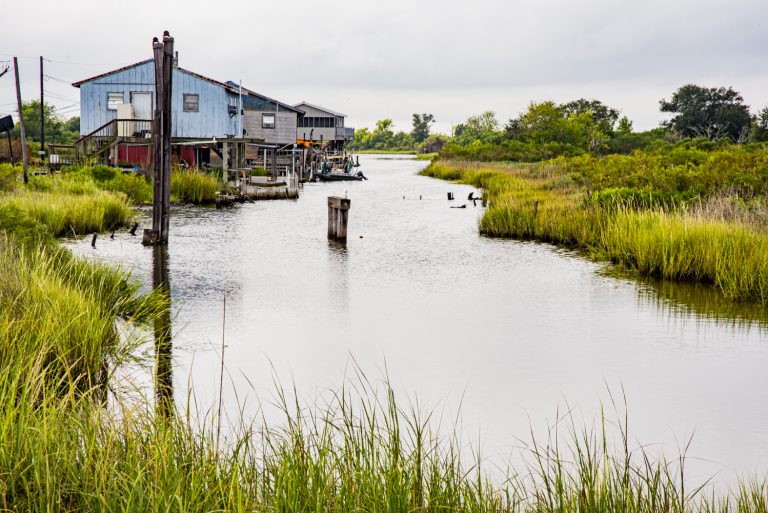
NWNL No swimming, no fishing, no land – and no fresh water?
JAMIE DARDAR No fresh water. No, ma’am. This used to be fresh water right here. Then this little canal was dug by the oilfields. You see them two poles right there? The oilfields people used to tie up there. They had a tank battery that was inside the woodsand they would come in and pump oil off of that. I don’t know if they took that battery out or if it got washed out by a storm. The one they left in the back is just sitting there corroding. As I said, they come in, they put something in. Once they’re done with it, they abandon it. They don’t come clean it up. They ain’t worried about removing it. They leave it there until nature does its course and ruins it. How long does that take?
Then you’ve got to worry about the freakin’ debris in the water. If you go shrimping, you’re going to catch oilfield debris. You’ve got to watch where you go, because that old oilfield had pipes and other stuff that we snag on lots of times. Then you have to jump overboard to cut your net.
NWNL Did you grow up hunting, as well as fishing?
JAMIE DARDAR Right there is the oilfield’s sign that marks their boundary. When my grandpa was young, that was all leased for fur trapping of muskrat, nutria, otter, mink… The only thing they have down here now is mink and otter. We don’t have no more muskrats. Once the fur disappeared from here, the fur trapping company sold it to Louisiana Land and Exploration.
NWNL I’ve heard nutria are destructive because they eat vegetation that strengthens the island against erosion and burrow through the levees.
JAMIE DARDAR Yeah. But right now, the only thing we’ve got that’s really burrowing are those little fiddler crabs. I ain’t got none right here, but if you pass along the marsh, you’ll see holes all through the bank, where the fiddler crabs are tunneling in underneath. So, it’s not just the nutria. The crabs got to have somewhere to hide so they dig a hole. You walk on top of their hole and it’s going to give out underneath your feet.
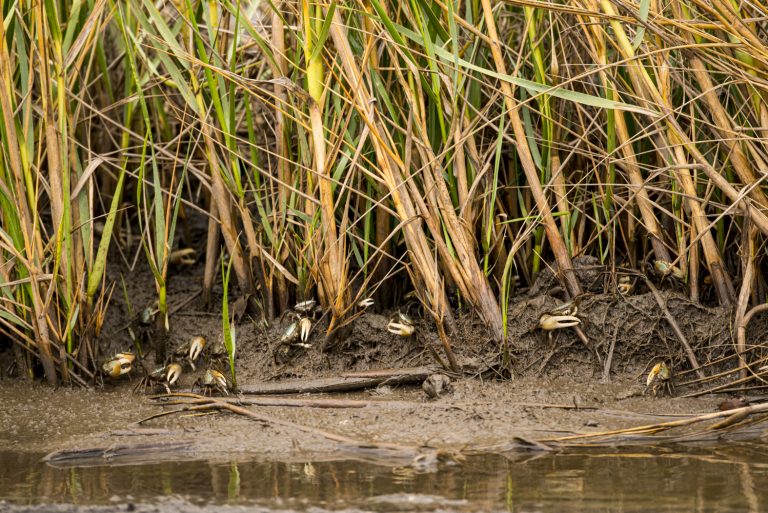
NWNL Last week I was at a conference with General Honoré, who rescued New Orleans after Katrina. He said, “The oil and gas industries are killing our democracy.” How have they affected your community?
JAMIE DARDAR If the oilfield companies had stuck to their agreement with people down here to fix their damage, and if they had done what they were supposed to do, we wouldn’t be dealing with the loss of land on this island. But they didn’t. They just came in; dug the canal; put up some wood to make a dam to stop the water from coming into their wells; and took off. All this land is eroding because of the oilfields.
Levee maintainence and warnings for underwater petroleum pipelines
NWNL Has oil drilling also increased saltwater intrusion and the salinity in your soil?
JAMIE DARDAR Yes. My grandpa always had a garden. When I was young, we grew corn, tomatoes, potatoes, figs, oranges, cucumbers, okra…. Almost every yard had a garden down here. The older people always had a garden. But now you can’t get nothing to grow down here. The ground is too salty. You put a plant in and it grows for a little bit. Then it’ll turn brown, because it’s hitting saltwater that quick. You dig a hole a foot, you’re hitting saltwater. We used to be able to grow gardens down here, but now hurricanes come in year after year after year.
NWNL Did the oilfields’ canals affect the island in other ways?
JAMIE DARDAR Well, behind me used to be a mile-long cow pasture where my uncle raised Brahma bulls. He was a cattle farmer. Now it’s barely a football field of land. The rest of it is now just marshland. There’s no good grass that grows there. The land just washed away.
Across the bayou, we raised pigs and billygoats. Everybody still refers to it as “Billy Goat Island,” because my uncle had about 40 to 50 goats there. Now, as you can see, the trees are disappearing. I’ve got old pictures that show that all this was mostly oak trees. There were about 200 families down here when we were young. We’re now down to 22 families.
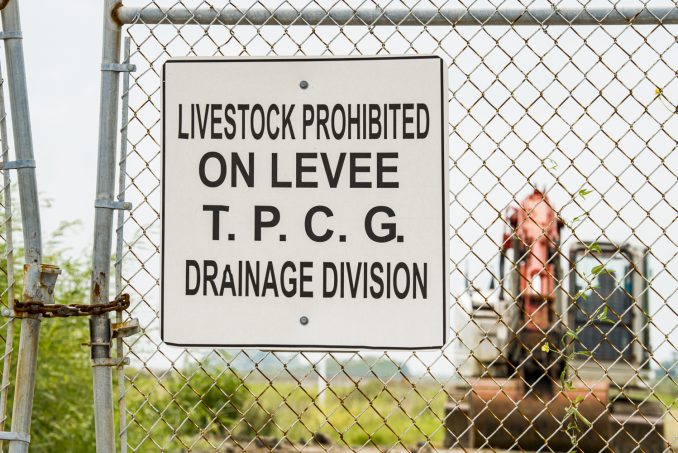
NWNL It seems the saltwater intrusion has ruined the resources that made life on this island possible.
JAMIE DARDAR Some of those 22 families would move if they could. We know, we’re going to have leave sooner or later, because of saltwater intrusion. Once the Island Road goes they’ll cut the gas. What’s the next thing to go? Electricity? All our water? You can’t depend on fresh water down here. There is none anymore. Even this bayou is no longer fresh water.
NWNL What are your thoughts about climate change?
JAMIE DARDAR Climate change is going to affect a lot of people. Our whole system depends on the Gulf Stream. You know, it’s a balance between cold and hot water. Who knows what’s going to happen? We don’t. And they really don’t know. It’s just that the climate’s going to end up wreaking havoc on all of us.
NWNL Last week, a New Orleans taxi driver said, “This weather is so changed. Used to be first of September when the cold came through and the heat was gone. Not anymore. Recently it just stays hot all the way through.” So should we call this “climate disruption?”
JAMIE DARDAR Oh, yes. They’re worried about emissions changing the climate, but yet they’re worried about a car company and oil companies losing money. Oil is the main thing people fight over.
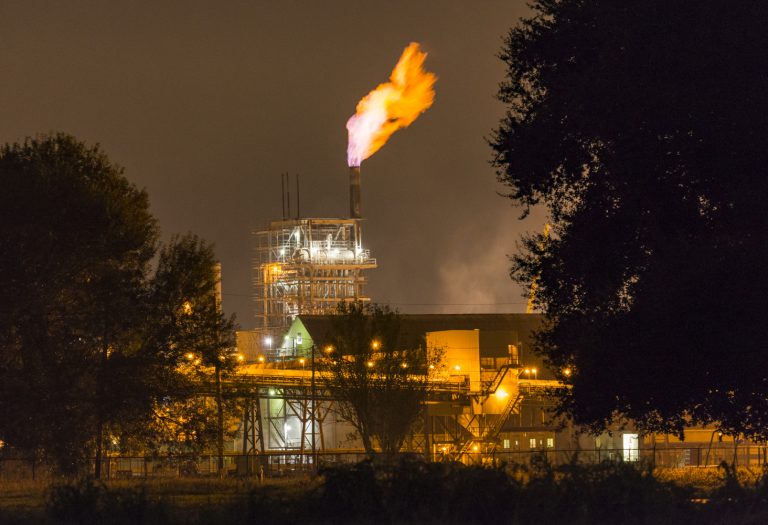
NWNL What’s the solution?
JAMIE DARDAR We got solar power. We got wind. We got water. Why are we dependent on oil? We got natural gas we could tap into that’ll run the same machine, cost a lot less, and is cleaner to burn. But we still throw oil and gasoline in that machine, and just hope for the best.
I don’t flood here during the summer. I flood during the winter. If the wind blows out of south for three days, I’m flooded. If it weren’t for that levee, everybody’d be flooded. But, that levee ain’t nothing but a bathtub, because when the hurricane came in, the water stayed inside the levee for over a week. I was dry.
NWNL Didn’t “The Beasts of the Southern Wild” movie highlight people who lived inside the levee in the so-called “The Bathtub?”
JAMIE DARDAR Yeah, the water goes out here where I am, because there’s nothing holding it in right here. But once you go over the little hump of a levee into “The Bathtub,” it stays flooded.
NWNL Why did the oil company put in that levee around “The Bathtub”?
JAMIE DARDAR All that is for abnormally high tides. There is a pump system, but nobody really comes and opens it. My cousin and I were the ones that opened the drain down here. “Beasts of the Southern Wild” called this a “bathtub” because that part inside the levee stays with water for weeks sometimes. I’m glad I’m not in it, because I don’t have to deal with the smell. Once that old mud sits, it kills the grass, which then gives off a funky smell. I watched that film. They shot a scene here to all the way up over there. They showed the Island Road and all that, but it was just a movie.
NWNL Yet, that movie exposed the problems here for people like me from “the dry side of the world.” Friends have said to me, “That’s the most powerful environmental movie I’ve ever seen.”
JAMIE DARDAR A lot of people don’t realize the dam was at this oilfield. Louisiana Land and Exploration owns all this. Apache Oil leases it, but Louisiana Land & Exploration still owns the marshes.
“The Bathtub” – where flood waters are retained by oil company levees
NWNL So how long do you think you’ll be able to live here?
JAMIE DARDAR I’ll stay out here for another couple of years. I’ll keep my house here. But because I know sooner or later it ain’t going to be here, I’m going to buy another place somewhere else. Me and my cousin was laughing about my plan to build me a barge and get me a little boat so whenever the road goes, I could charge people to drag them down here.”
NWNL How does that future make you feel?
JAMIE DARDAR Not good, because we used to have land all the way…, God, for a long way! The only real cut we had was by that little concrete area you passed where everybody’s fishing. There used to be land all through there, with just a little canal that ran in.
NWNL We can see oilfield remnants from here. So, you must have watched the changes they brought on?
JAMIE DARDAR The oilfields came and dug up this land with their marsh buggies, so they could barge in off-road equipment to put in a well. One year they actually had a drilling well right here behind our house. We had one here – we had one there. There’s a big old freakin’ one around the corner.
NWNL Were they drilling for oil or gas?
JAMIE DARDAR I have no idea, but I know they used directional drilling to tap the oil on the island, because one of the oilfield representatives asked my aunt if she would sell her land. They wanted to drill there because it was the easiest way to get to the oil.
NWNL Was there any oversight of the oil company’s activities?
JAMIE DARDAR We’ve fought against the oilfield and the Department of Wildlife and Fisheries leased land so they could monitor it. But yet they don’t mark it or let anybody know what land we can’t use. They ticket more people on that curve than anywhere else. We got stopped by them for walking one night. They harassed the shit out of us, saying they were going to give us a ticket because we were on that land at night. I said, “So, what are you’re going to tell me – that we can’t cross that part?” I checked into it. The Department of Wildlife and Fisheries owns the road, but they gave permission to Terrebonne Parish to build over it, so our parish maintains the road. But once you step off the road, you’re on Wildlife and Fisheries land.
NWNL All those people fishing from the sides of the Island Road causeway today…
JAMIE DARDAR They’re on Wildlife and Fisheries land. As long as you’re on the road, you’re ok. On parish land, you’re ok. They’re from everywhere. We get people from everywhere that come here to fish. Some have probably been fishing here all their lives, some for generations.
NWNL What is the land reclamation on the mainland side of Island Road? I saw signs and piles of dirt along that look like a levee that’s perhaps being reinforced.
JAMIE DARDAR That’s Wildlife and Fisheries working to keep waves from tearing up the levee. They look at all levees. The right-hand side belongs to Terrebonne Parish. This side belongs to the Levee Board. So, two separate entities are fighting over maintaining this island. They steadily bump heads over who’s going to maintain what.
We’re in a losing battle that we know we can’t win, because sooner or later they’re going to cut the power. They’ll cut everything, so we’ll have to bring our own power and our own water down here. After the hell they gave us to get that rebuilt, we know that once that road goes, they’re not going to rebuild it.
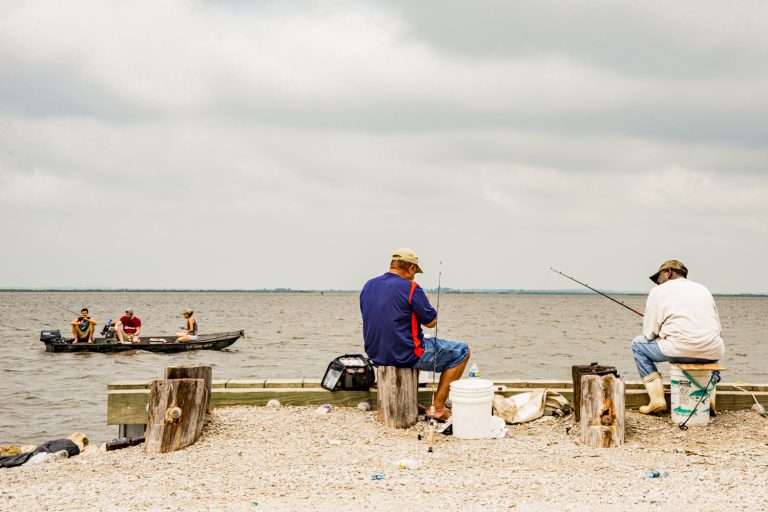
NWNL Do the children here go off-island for school?
JAMIE DARDAR Yes, they leave the island for elementary, middle, and high school. But when the road’s flooded a lot of them miss school. The parish has known about this for years. They built the road where it is so they could line the pockets of two grocery stores down here- and because the whites in Montegut didn’t want Indians “across their backyard,” as they put it. So, there’s always been a racial thing down here.
Our government doesn’t do anything for us. Mr. Hilton called in to complain about the levee’s high grass that was over seven foot tall. Every other levee system down here is maintained and cut – but not ours. They ain’t worried about us. Look at the road. The road’s falling apart over here, and we stay flooded. I’ve got mud always in front of my house. They don’t worry about us.
NWNL Flooding often narrowed the first Island Road down to one lane. Then it was rebuilt. How did that come about?
JAMIE DARDAR The parish didn’t want to, but it had to rebuild the road. When we went to Council Meetings, the guy who sat there for us said, “Look, if it was a rich neighborhood, that road would have been built in a couple of days. But because it’s an island and Native Americans live here, this parish is trying every which way it can to not rebuild the road.” It might have pissed off some people that sat next, but that was the honest truth. He said, “You all would have built the Allendale subdivision road if it washed away. That would have been built in a couple of days.” As he told us, “Because it’s an island with Native Americans, they’re not worried about it.” And, really, they’re not.
NWNL Looking forward, have you heard about the Master Plan for the next 50 years?
JAMIE DARDAR Maybe….
NWNL A $50-billion Master Plan was passed unanimously by the Louisiana legislature to save New Orleans and this coastal region. Thus far, they’ve raised $18 billion for protective infrastructure. General Honoré, and others seeking unpaid damages done by drilling, say they’ll get the balance from oil and gas.
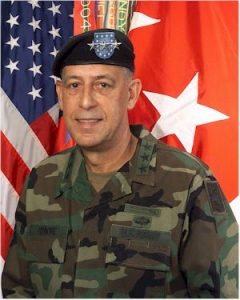
JAMIE DARDAR Oh, yeah. But the oilfields don’t want to give nothing; and if they don’t include us in that Protection Area Map, we won’t last. The salt water is going to come in.We’re going to be the first indigenous people in Louisiana to have to leave their land, because of governmental actions and the salt water. You know, the water is really all politics, all money. Money moves everything.
NWNL If you became a federally-recognized nation, do you think that decision might be changed?
JAMIE DARDAR No, I really don’t deal with none of the politicians too much, because they lie to us so much. Can’t believe a thing that comes out of one person’s mouth, because they tell you one thing, then the next week they tell you another thing. They always come here during election time, saying, “Vote for me. I’m going to do this for you.” I tell them, “You come back and stay over here.” They’ve done nothing at all for us. Every year it’s the same crap, just a different idiot running for office.
NWNL You say you are doing documentary film work here?
JAMIE DARDAR Yes, we’re filming the change in life here, what people were doing, and how everybody moved away. But a lot of people don’t want to talk. I live down here, and they still won’t allow me to video them too much.
NWNL Do your neighbors understand what’s happening?
JAMIE DARDAR Yes, but they know that talking about it ain’t going to get nothing done. We can’t trust our representatives for this district. With the last storm that came in – Isaac – our representative went to set up water supplies from Monteguton the mainland. Then he told us we couldn’t get any because it was for the Montegut residents. But we’re a Montegut address and we’re Montegut residents. Why is it just for them?
NWNL How do your children feel about living here?
JAMIE DARDAR You know, when we were young, we didn’t expect all this to be gone. We used to go in the woods and play. We had woods where it was so thick that we couldn’t even see the sun on a bright day. Now all we’ve got is little things growing on the side. That’s all the woods them kids have got. You can tell that the few live oak trees, are dying, dying or dead.
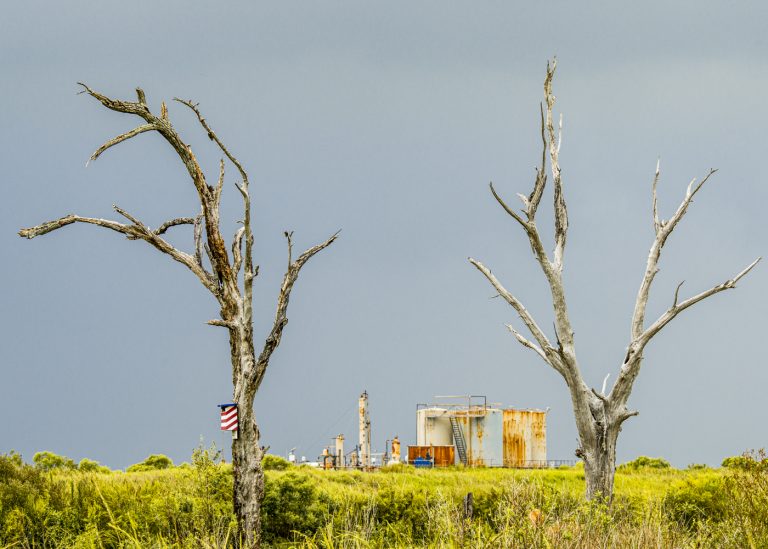
NWNL Do you think this is still a good place to raise your kids?
JAMIE DARDAR Yeah. It’s a peaceful neighborhood. Everybody watches out for everybody. We all know each other. Yes, it got bad for a while because we had drugs, like crack or something – but our problems are mainly people coming from somewhere else to steal down here. People had lawn mowers stolen. I had a whole boat – motor, trailer, everything –missing one day. They stole all my live bait and all my traps. It cost me a fortune to get that replaced. When you try to start making a living again, you can’t get back to where you were. It’s rough.
NWNL Those thieves were from off-island?
JAMIE DARDAR We had a few, but they came with people that were from here. It’s a whole new thing for us down here. Our culture is different now. Even our language. I had a conversation with people from France that came over. One said, “It’s amazing. I’m 1,000 miles away from my home, yet you can speak my language – and you didn’t have to go to school to learn it.” I explained that when I went to school, they made us quit speaking French. If they caught us, we’d get whipped or punished. Now they’re teaching kids French, because they didn’t grow up with it. I went to school to learn English. Now there’s not many of us down here that speak French.
NWNL What would you like your nieces, nephews, cousins and the children of this island to know, learn and experience before they have to leave?
JAMIE DARDAR Our culture of trapping, hunting, fishing, how we used to make a living. I could track anything through this marsh. I know how to track animals, know what they do, and when they’re going to do it – pretty much just from what my grandpa taught me when I was young. I know how to find a trail coming in and coming out. But if you turn children loose in the marsh grass these days, they don’t know what to do.
My little boy is 17, and he couldn’t find his way out of a wet paper bag if you turned him loose. I try to teach him, but he doesn’t want to learn. He’s too worried about what’s going on on that phone, on Facebook, on what time he can play the video game. But, we’ve got some kids here that want to learn a trade and learn their culture. Our chief visited a bigger tribe with a woman from Michigan or somewhere up there. She told him we have no culture on our island. Yes, we do! We hunt. We’re trappers. We’re fishermen.That has been our culture.
NWNL Were you in this house during Katrina?
JAMIE DARDAR Oh, yeah, I stayed for Katrina and Rita. Rita brought six-and-a-half feet of water underneath my house.There were big sea turtles in the back of the house, giant, beautiful. We stay. My wife and I stay, always stay, because I’m afraid we’re going to get broke into. Now I’ve got hidden cameras in my house, so I can leave and not have to worry about it.
NWNL Jamie, I hope your other worries disappear as well – and I really thank you for telling your story.
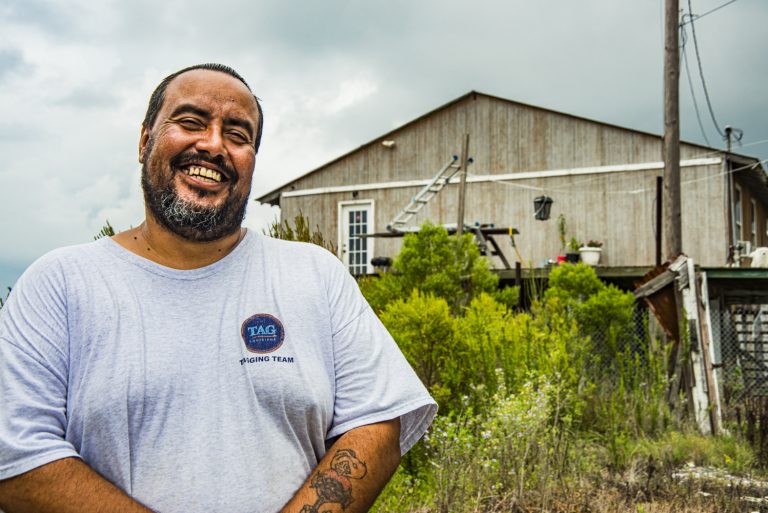
Months after this interview, Jamie stopped shrimping and left Isle de Jean Charles to buy an 18-wheeler and return to Interstate truck driving. He based himself in Virginia, writing “I have given up on the fishing industry due to low prices and availability of products.”
Yet, missing home, he returned to Upper Pointe aux Chênes at the dry end of Island Road to live with his mother who was awaiting her relocation. He started a garden and raised chickens again. In 2018, he wrote that he and his mother had moved to their promised relocation town. He is working there as a certified boilermaker for chemical plants. “I have decided to move into the new community being developed, hoping that it will give our families a future and allow our children and grandchildren to have a place where they can call home.”
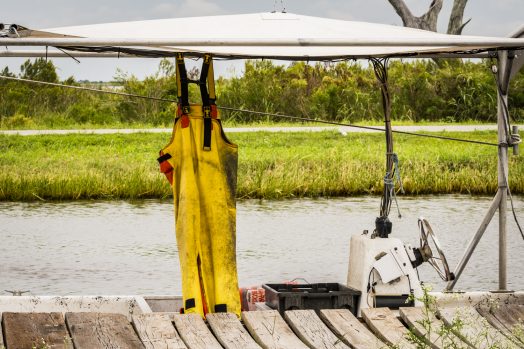
Posted by NWNL on Aug 24, 2019.
Transcription edited and condensed for clarity by Alison M. Jones.
All images © Alison M. Jones, unless otherwise noted. All rights reserved.
